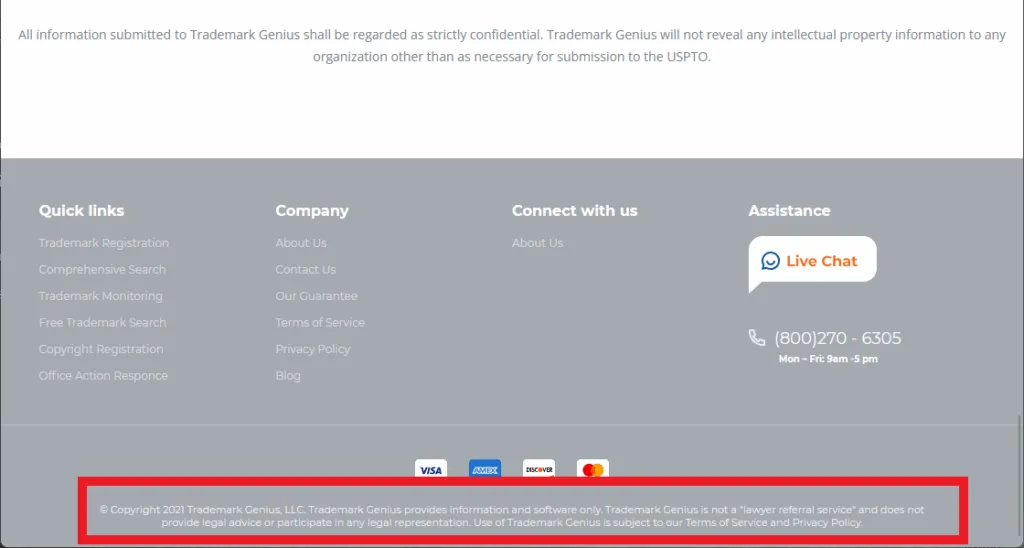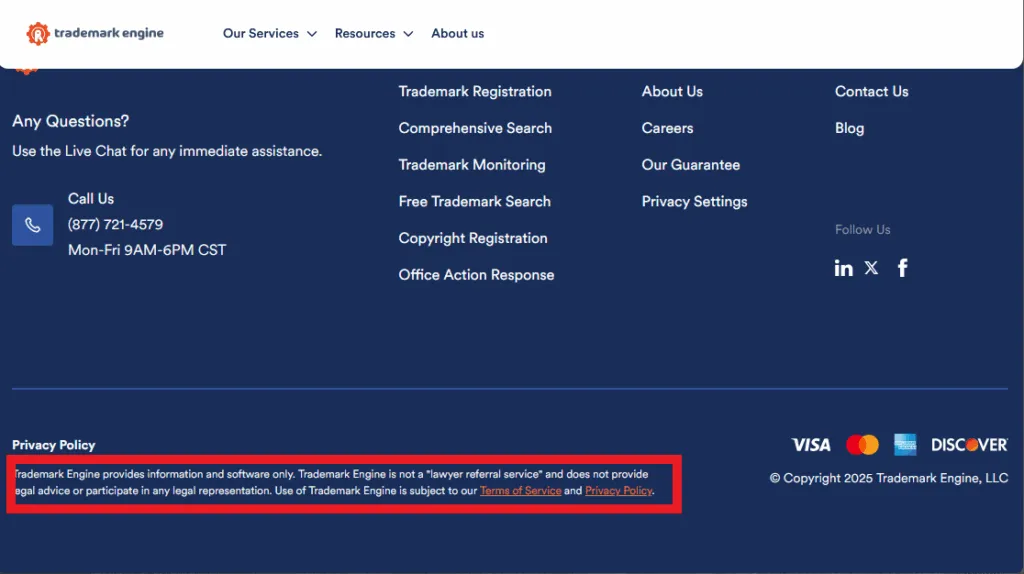What’s Wrong with DIY Trademark Filing Services?
In today’s digital age, do-it-yourself legal services promise quick, affordable solutions for complex legal matters. Websites like Trademark Engine, Trademark Genius, and similar platforms market themselves as cost-effective alternatives to hiring an attorney for trademark registration. While the appeal of saving money is understandable, the reality is that do-it-yourself (DIY) trademark filing services often create more problems than they solve, potentially costing businesses far more in the long run.
The Complexity Behind the Simple Interface
Trademark law is deceptively complex. What appears to be a straightforward process of “filling out a form” actually requires deep understanding of federal trademark law, USPTO procedures, and strategic business considerations. The user-friendly interfaces of DIY platforms mask the sophisticated legal analysis required for proper trademark protection.
Classification Errors: A Costly Mistake
One of the most frequent and damaging errors occurs in trademark classification. The USPTO requires applicants to specify the exact goods and services their trademark will cover, using the International Classification system with 45 different classes. DIY services often:
- Suggest overly broad classifications that will be rejected
- Recommend incorrect classes that don’t actually cover the applicant’s business
- Fail to identify strategic additional classes that could provide valuable protection
- Use generic language that weakens the trademark’s scope of protection
A misclassified trademark application isn’t just delayed—it can result in a registration that provides little to no actual protection for the business’s core activities.
The Search Problem: Surface-Level Analysis
Professional trademark searches involve comprehensive analysis of existing registrations, pending applications, common law trademarks, and potential conflicts. DIY services typically offer only basic database searches that miss:
- Similar marks in related industries that could block registration;
- Phonetically similar trademarks;
- Foreign language equivalents and translations;
- Common law rights held by unregistered users;
- Pending applications that haven’t yet appeared in databases.
This superficial approach often leads to “clear” search results that give false confidence, only to have applications rejected months later due to conflicts a proper search would have identified.
Inadequate Legal Strategy
Trademark registration isn’t just about getting approved—it’s about building a defensible intellectual property portfolio. DIY services cannot provide the strategic guidance that includes:
 Trademark Genius’s fine print states it is not a “lawyer referral service” and “does not provide legal advice.” A company that provides “legal services” but doesn’t provide legal advice?
Trademark Genius’s fine print states it is not a “lawyer referral service” and “does not provide legal advice.” A company that provides “legal services” but doesn’t provide legal advice?
- Timing considerations: attorneys understand when to file based on business development stages, product launches, and competitive landscapes. DIY services typically encourage immediate filing regardless of whether it’s strategically optimal;
- Strategic counseling: experienced trademark counsel considers how individual registrations fit into broader IP strategies, including potential future business expansion, licensing opportunities, and defensive positioning against competitors;
- International issues: with global commerce increasingly common, trademark strategy must consider international protection. DIY services rarely address Madrid Protocol filings, foreign registration strategies, or international trademark conflicts;
- Office Action nightmares: when the USPTO issues an Office Action with refusals, requirements, or requests for information, the DIY service model breaks down entirely. Most DIY services either abandon clients at this stage or provide inadequate form responses that often make the situation worse. The result is frequently abandoned applications and wasted filing fees. Responding to an Office Action requires:
- Strong understanding of trademark law and USPTO practice;
- Ability to craft persuasive legal arguments;
- Knowledge of precedential cases and examination guidelines;
- Strategic decision-making about amendments and arguments.
- Hidden costs add up: while DIY services advertise low upfront costs, the true expenses often include:
- Multiple filing fees due to rejected applications;
- Additional fees for inadequate Office Action responses;
- Lost opportunities from delayed or failed registrations;
- Expensive legal cleanup when problems emerge;
- Potential litigation costs from inadequate protection
- Maintenance and enforcement gaps: trademark rights require ongoing maintenance and enforcement. DIY services typically provide no guidance on:
- Proper trademark usage to maintain rights;
- Monitoring for infringement;
- Renewal requirements and deadlines;
- Enforcement strategies against infringers;
- Licensing and ownership transfer issues.
 Trademark Company’s fine print states it “provides access to independent attorneys and self-help services”
Trademark Company’s fine print states it “provides access to independent attorneys and self-help services”
When DIY Services Are Appropriate (Spoiler: Almost Never)
There are some limited circumstances where DIY trademark filing might be appropriate:
- Very simple, obviously distinctive word marks (design marks and logos are trickier);
- Single-class applications with clear classification;
- Applicants with extensive prior trademark experience;
- Situations where budget constraints make any protection better than none.
The Professional Alternative
Working with an experienced trademark attorney provides:
- Comprehensive clearance searches and analysis;
- Strategic application preparation and classification;
- Expert Office Action responses;
- Ongoing portfolio management and enforcement guidance;
- Protection of attorney-client privilege for sensitive communications.
Red Flags to Watch For
Be particularly wary of DIY services that:
 Trademark Engine’s fine print indicates it does not provide “legal advice”
Trademark Engine’s fine print indicates it does not provide “legal advice”
- Provide little to no human interaction or legal guidance: see Trademark Engine’s small print that shows it does not provide “legal advice”;
- Guarantee approval or “money-back” promise: attorneys are ethically required to not make guarantees because a guarantee is a false and misleading legal communication (see California’s Rules of Professional Conduct), and Trademark Genius’s website contains a “guarantee”;
- Too-good-to-be-true pricing: Trademark Engine’s $49 pricing is not realistic to file a trademark application;
- Missing attorney info: Do not provide the attorney’s information, including bar admission and practice area information (see Trademark Company’s fine-print that it is not a law firm and does not give “legal advice”);
- Use aggressive marketing tactics or pressure sales;
- Make unrealistic timelines, promises, or false claims about the registration process; even the USPTO warns against this in its website.
Conclusion
Your trademark is often your most valuable business asset—it’s your brand, your reputation, and your competitive advantage rolled into one. The short-term savings from DIY filing services pale in comparison to the long-term risks of inadequate protection, costly mistakes, and missed opportunities. For more information on trademark filing services, trademark law, or trademark application process, please contact Yonaxis I.P. Law Group.

Brent T. Yonehara
Founder & Patent Attorney
Founder Brent Yonehara brings over 20 years of strategic intellectual property experience to every client engagement. His distinguished career spans AmLaw 100 firms, specialized boutique I.P. practices, cutting-edge technology companies, and leading research universities.
More About Brent